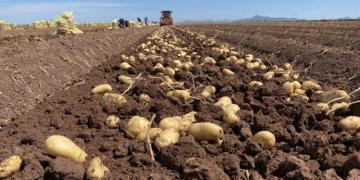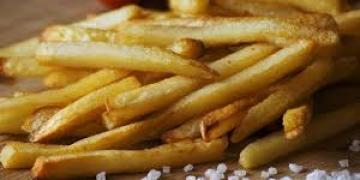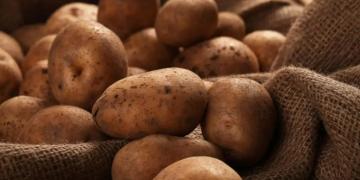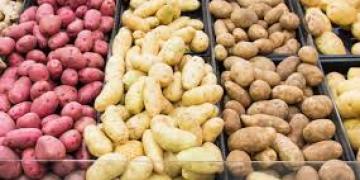Gran Bretaña: Summer heat dents potato yields by 30%, trial reveals
Potato crops have paid a heavy penalty as a result of this summer’s record-breaking temperatures and drought, according to a trial.
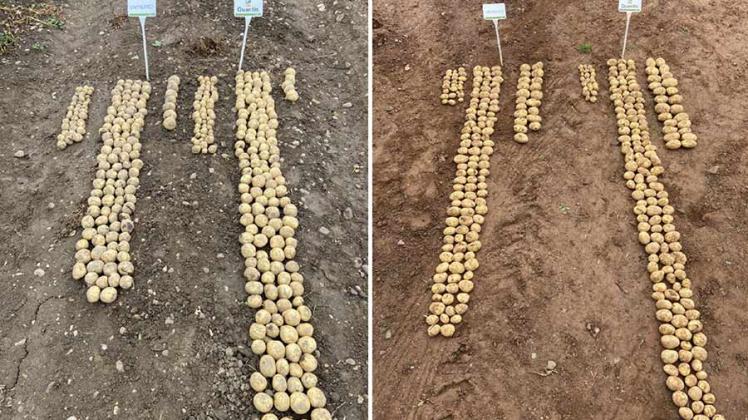
First digs from this year’s Quantis heat-stress biostimulant field trials suggest yields may be more than 30% lower in untreated crops.
However, the use of the biostimulant appears to have helped in a series of trials from the South East to the mid-West, with marketable yields on average 24% higher.
See also: Are perennial grain crops close to being a realistic alternative?
The total tuber numbers in marketable size grades have been on average 34% greater in the treated areas, reported Syngenta technical manager, Andy Cunningham.
Advertisement
Andy CunninghamAndy Cunningham © Syngenta
Application at early tuber stage
“It appears that an application at early tuber initiation has been hugely beneficial in helping plants to set more tubers.”
Further applications during periods of heat stress through the growing season has enabled crops to keep growing and produce more marketable yield, he added.
All the trials received an application of the biostimulant at tuber initiation.
Explore moreKnow How
Visit our Know How centre for practical farming advice
Potatoes crop management
Two additional treatments were used during the tuber-filling growth stages when conditions were predicted to be challenging to crops.
“Research has shown best results can be achieved with the biostimulant applied two to three days prior to onset of heat stress,” said Mr Cunningham.
“Nottingham University research has proven that Quantis helps plants to better regulate excess heat and continue to utilise available sunlight.”
Results of irrigated trials in Kent and the Midlands were most noticeable in producing the greatest uplift in tuber numbers in the 50-60mm size category.
At Weobley, Herefordshire, the crop of Nectar produced 24% more tubers of marketable size and more than 30% higher total tuber weight of marketable grades.
Quantis is a liquid plant biostimulant containing amino acids and peptides to enhance plant performance in potatoes, wheat, barley and sugar beet.
High temperatures and potatoes
Modern potato varieties are adapted to grow at optimum temperatures of between 14C and 22C, with long day conditions, says Rumiana Ray, professor of plant pathology at the University of Nottingham.
Elevated temperatures, beyond 28C, can cause profound effects on several physiological development processes.
“Those effects include on-stem elongation, inhibition of tuberisation, decrease in the rate of photosynthesis and biomass partitioning,” says Prof Ray.
She points out that at very high temperatures, beyond 35C, tuberisation can be completely abolished.
Fuente: https://www.fwi.co.uk/arable/potatoes/summer-heat-dents-potato-yields-by-30-trial-reveals

